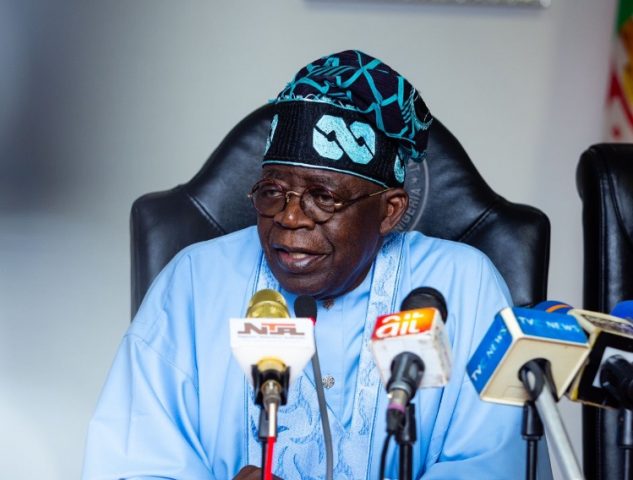Nigeria’s Public Debt Nears N180 Trillion as Tinubu Proposes Fresh N34 Trillion Loan…Nigeria’s public debt profile is on a steep upward trajectory as fresh borrowing plans by the Tinubu administration could push the total national debt stock close to N180 trillion in the coming years.
According to figures released, the nation’s debt stood at N134.3 trillion as of June 2024, representing a 10.35 percent increase from the first quarter of the year.
The surge is largely due to the continued devaluation of the naira, which has inflated the naira value of Nigeria’s foreign debt obligations, even though the actual dollar figures remain relatively unchanged.
In a move to address infrastructural gaps and stimulate economic growth, President Bola Tinubu is seeking approval for a new borrowing plan amounting to N34.15 trillion.
The proposal outlines borrowing projections of N9.22 trillion in 2025, N8.78 trillion in 2026, and a significant jump to N13.24 trillion in 2027.
Most of these loans—nearly N25 trillion—are expected to be sourced from the domestic market.
However, this borrowing strategy has raised concerns among economists, financial experts, and political observers.
Between 2025 and 2027, the federal government projects that N50.39 trillion will be allocated to debt servicing alone.
In comparison, only N48.93 trillion is planned for capital expenditure over the same period.
For 2025 specifically, the government plans to spend N15.38 trillion servicing existing debts, a figure that looms large over the national budget.
Critics have voiced apprehension over the government’s growing dependence on loans.
Former Vice President Atiku Abubakar and the Lagos Chamber of Commerce and Industry (LCCI) have both questioned the sustainability of this financial approach, warning that the increasing debt could crowd out investments in vital sectors such as education, healthcare, and infrastructure.
The Tinubu administration insists the loans are necessary to fund strategic projects in energy, agriculture, transportation, and security, arguing that these investments will drive economic development and job creation.
Nonetheless, public and expert opinion remains divided, especially as debt servicing consumes an ever-larger portion of national revenue.
With debt obligations projected to rise alongside the government’s appetite for borrowing, many are calling for a more balanced and transparent fiscal strategy to safeguard Nigeria’s economic future.
READ MORE: COAS Vows to Bolster Operations with More Combat Enablers
Still, public sentiment remains divided. While some acknowledge the urgent need for infrastructure development and economic stimulus, others believe that the government must explore alternative funding mechanisms, including public-private partnerships and enhanced revenue generation through tax reforms and anti-corruption efforts.
As Nigeria moves forward with its ambitious borrowing plan, many experts are urging a careful and transparent approach to debt management. With debt servicing now accounting for a significant portion of the national budget, the question remains: can Nigeria borrow its way out of poverty and underdevelopment, or is it building a financial time bomb for the future?




